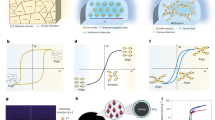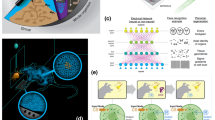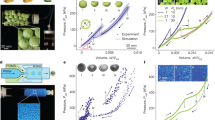Abstract
CLERK MAXWELL many years ago surmised that viscous liquids in a state of flow should exhibit birefringence, and devised methods of observing the phenomenon. Vorländer and Walter (Zeits. Phys. Chem., 118, 1; 1925) have recently investigated no fewer than 172 liquids of known chemical composition by Maxwell's method, and their work has demonstrated conclusively that a great many pure liquids which cannot by any stretch of language be classed as colloids, exhibit birefringence when subjected to viscous flow. The Maxwell effect, as it may be called is thus a characteristic property of pure liquids just as much as the power of exhibiting birefringence in strong electrostatic or magnetic fields. We wish briefly in this note to indicate a molecular theory of the Maxwell effect we have worked out which has proved itself very successful in explaining the observed phenomena.
This is a preview of subscription content, access via your institution
Access options
Subscribe to this journal
Receive 51 print issues and online access
$199.00 per year
only $3.90 per issue
Buy this article
- Purchase on Springer Link
- Instant access to full article PDF
Prices may be subject to local taxes which are calculated during checkout
Similar content being viewed by others
Author information
Authors and Affiliations
Rights and permissions
About this article
Cite this article
RAMAN, C., KRISHNAN, K. The Maxwell Effect in Liquids. Nature 120, 726–727 (1927). https://doi.org/10.1038/120726a0
Issue Date:
DOI: https://doi.org/10.1038/120726a0
Comments
By submitting a comment you agree to abide by our Terms and Community Guidelines. If you find something abusive or that does not comply with our terms or guidelines please flag it as inappropriate.



